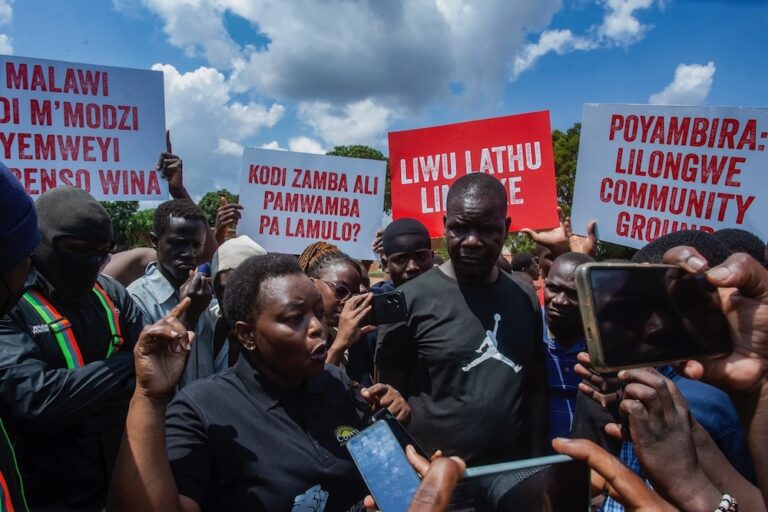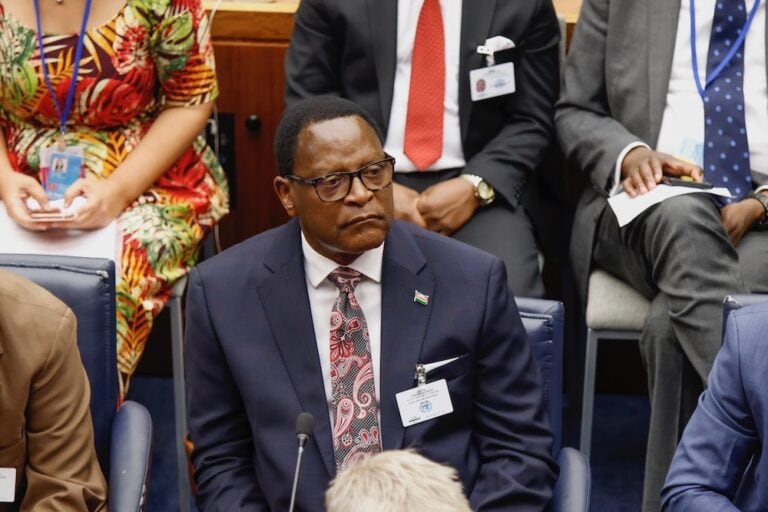According to MISA-Malawi, the amendment is inconsistent with the fundamental rights and freedoms enshrined in the Constitution.
(MISA/IFEX) – The Malawi Chapter of the Media Institute of Southern Africa (MISA-Malawi) is shocked and disturbed over a decision by President Bingu wa Mutharika to assent to the Section 46 Penal Code Amendment Bill. MISA-Malawi petitioned the President on 16 November 2010, soon after the bill was passed in Parliament, asking him to send back the amended bill for further consultation.
The view, then and now, of MISA-Malawi, the Media Council of Malawi and other relevant bodies that represent media interests, is that there was not adequate consultation when the section in question was being considered for amendment.
MISA-Malawi also brought to the attention of the President the fact that the amendment was inconsistent with the fundamental rights and freedoms enshrined in the Malawi Constitution, and posed a threat to media freedom in the country.
Therefore, MISA-Malawi and the entire media community question the President’s commitment to media freedom, as he has on several occasions claimed to be a true friend of the media and a champion of press freedom.
With the new law, the Minister of Information is empowered to ban publications. The amended section 46 of the Penal Code, now reads: “If the minister has reasonable grounds to believe that the publication or importation of any publication would be contrary to the public interest, he may, by order published in the ‘Gazette’, prohibit the publication or importation of such publication.”
Before the proposed amendment was approved, the section only prohibited importation of seditious publications.
This new law is contrary to Section 36 of the Malawi Constitution, which stipulates that “the press shall have the right to report and publish freely, within Malawi and abroad, and to be accorded the fullest possible facilities for access to public information.”
Other commentators described Section 46 as retrogressive rather than progressive for Malawi as a nascent democracy.
This unfortunate amendment is a tragedy to democracy at large and media freedom in particular.
Although the section was put in the Penal Code during the colonial era, this amendment has made it worse and MISA-Malawi questions the government’s intention as this law undermines the spirit and provisions of the Constitution of Malawi, which the President took an oath to uphold.
This move to introduce such a law could easily be construed as a strategic move by the government to deliberately target publications that are critical of President Mutharika’s administration. Such laws characterise a one party dictatorship and MISA-Malawi wonders whether President Mutharika intends to leave a legacy as a President who killed the free press in Malawi.
With the assent to this “archaic” proposed law, the media, which is regarded as the fourth estate, is under siege and a hard-won democracy under extreme threat. This law will only manage to instill fear not only in media practitioners but also media house owners who will be afraid of attracting the wrath of the minister.
Now that the amended Section 46 has become part of the legislation regulating the media in Malawi, MISA-Malawi would like to ask for an assurance from President Mutharika and his government that this new law will not be used to punish media houses.
MISA-Malawi would like to appeal to Parliament to resist the temptation to advance amendments that do not encourage the development of the country’s democracy. Posterity will judge the Parliament as an institution that worked tirelessly against the tenets of democracy. It is, for this reason that MISA-Malawi calls on Parliament to consider repealing Section 46 of the Penal Code.


